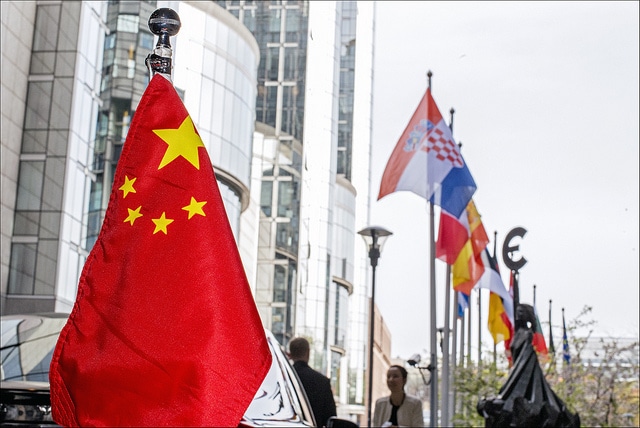
This is not a rhetorical or academic question, since the way it is answered by the Europeans in December will determine whether there is an even greater rise in the Asian giant’s exports to the EU, which is split on the issue and with the protectionist tendency in the ascendency. Beijing believes it has the right to claim Market Economy Status (MES) at the World Trade Organisation (WTO) automatically. The EU’s so-called ‘anti-dumping front’ does not see it this way, and this time sides with the US, which claims that China discriminates against foreign businesses and does not respect intellectual property law, accusing it of taking the lead in industrial cyber-espionage.
China joined the WTO 15 years ago, which does not mean that it has thereby turned into a typical market economy, although it has made progress with its own model of what some call ‘state capitalism’. Countries such as Australia, Brazil and South Africa, among others, have granted it MES. The EU normally requires that five criteria are satisfied before it concedes such recognition: the allocation of economic resources by the market, the abolition of the barter economy, corporate governance, property laws and the opening up of the financial sector. In many ways, apart from the barter requirement, China is a long way from meeting these criteria, although everything is a question of degree (even if they are applied to European economies).
Fearing an avalanche of low-cost Chinese goods, the European Parliament, in a rare act of virtual unanimity between left and right, voted in May to withhold the status from China. This is the position that is fiercely defended by France, Germany, Italy (whose Prime Minister, Matteo Renzi, is one of the few to have expressed his opinion in public, probably because various Italian strategic industries are among the most exposed) and Spain, among others. Slovakia, which takes on the Presidency of the Council of the EU in July and which sees the preservation of its steel industry as vital, also numbers among their ranks. Leading the free trade camp in favour of granting MES to China is the UK, although its distraction with the Brexit question has reduced its heft in the debate (and it too has to defend jobs in the steel and industrial sectors). The European Commission, the institution that bears responsibility for EU trade policy, used to be more inclined towards China, but after a series of internal debates its President, Jean-Claude Juncker, said at the G7 summit in Japan that the EU could not be left ‘defenceless’ against market distortions.
As an excellent report for the European Parliament explains, China’s currently being classed as a non-market economy in its protocol of accession to the WTO makes anti-dumping proceedings against it easier, since it provides the possibility of using other methods to determine the normal value of goods, instead of using domestic prices to compute the dumping margin.
If China obtained MES it would make it more difficult for the EU to impose dumping tariffs and other measures on the prices of Chinese products. The EU would have to withdraw many of the measures it has in place against China, amid the fear that the European market would be flooded with products cheaper than their own, thanks to hidden public subsidies, or selling at prices below the cost of production. This accounts for the resistance of many European governments and firms, some members of AEGIS Europe, an industry alliance.
In the midst of this debate the question of steel has emerged. France and Germany, who have adopted a joint stance on the issue, want the EU to bare its teeth to protect itself from Chinese dumping. They call it a ‘balanced modernisation’ of the lesser duty rule, according to which the tariffs or anti-dumping measures are calculated in accordance with the damages caused. Not all EU members agree on this point however. For its part the US has announced rises of up to 500% in import tariffs on some types of Chinese steel. There is widespread overproduction in the context of a worldwide economic slowdown, but China also argues that several million of its workers could be affected by these restrictions.
The EU is China’s largest trade partner, while China is the EU’s second largest partner, and has been negotiating a bilateral investments deal for the last four years. The Europeans unanimously fear that a clear refusal to grant China its coveted status could induce Beijing into taking retaliation, whether in investment or trade, raising tariffs on EU imports or instigating proceedings against alleged dumping cases. At a time of general economic weakness, such a prospect is even more alarming. Moreover, China was the first foreign country to announce its intention to contribute capital –between €5 billion and €10 billion– to the Juncker investment plan. To play for time, a time-honoured intermediate possibility is thus being contemplated in Brussels: that of requesting a report from the WTO to clarify the situation, in order to end up granting MES in a year or two, with some provisos. But China insists that the process should be automatic. And great care is called for, because if China does not feel happy in an international organisation it establishes another, as it has shown with the Asian Infrastructure Investment Bank.


